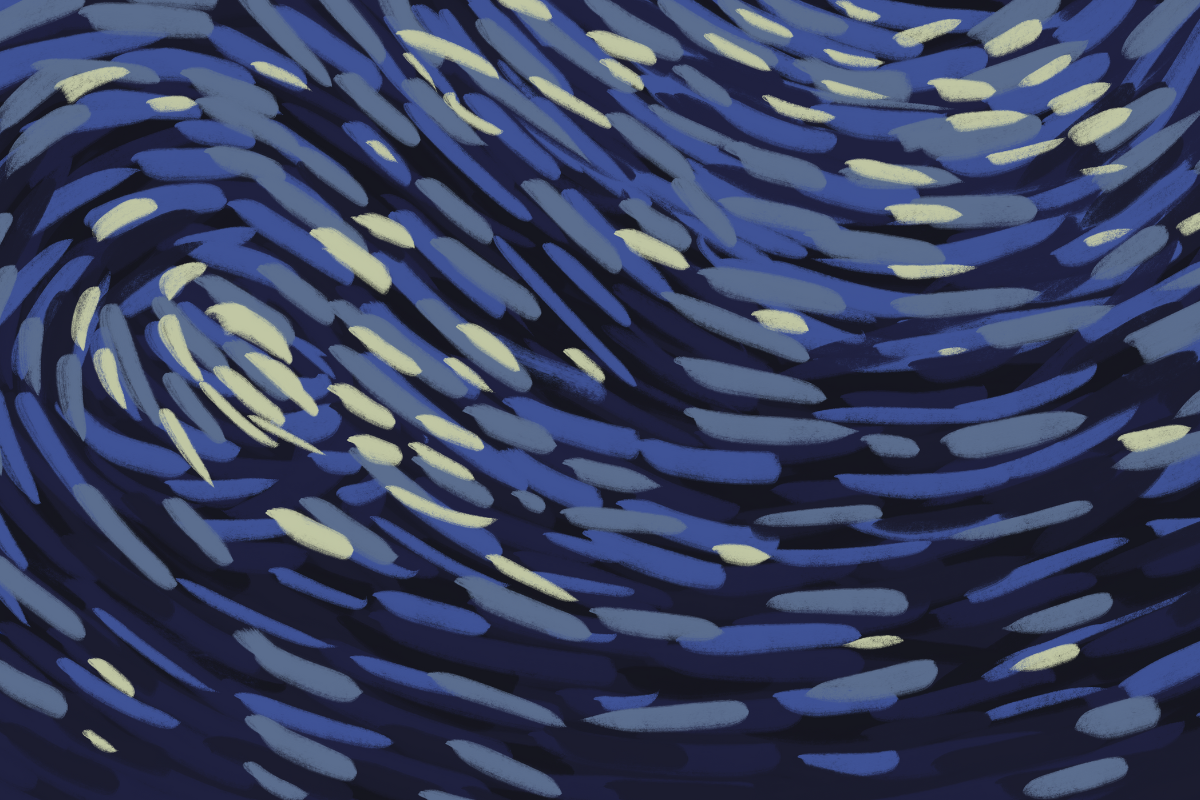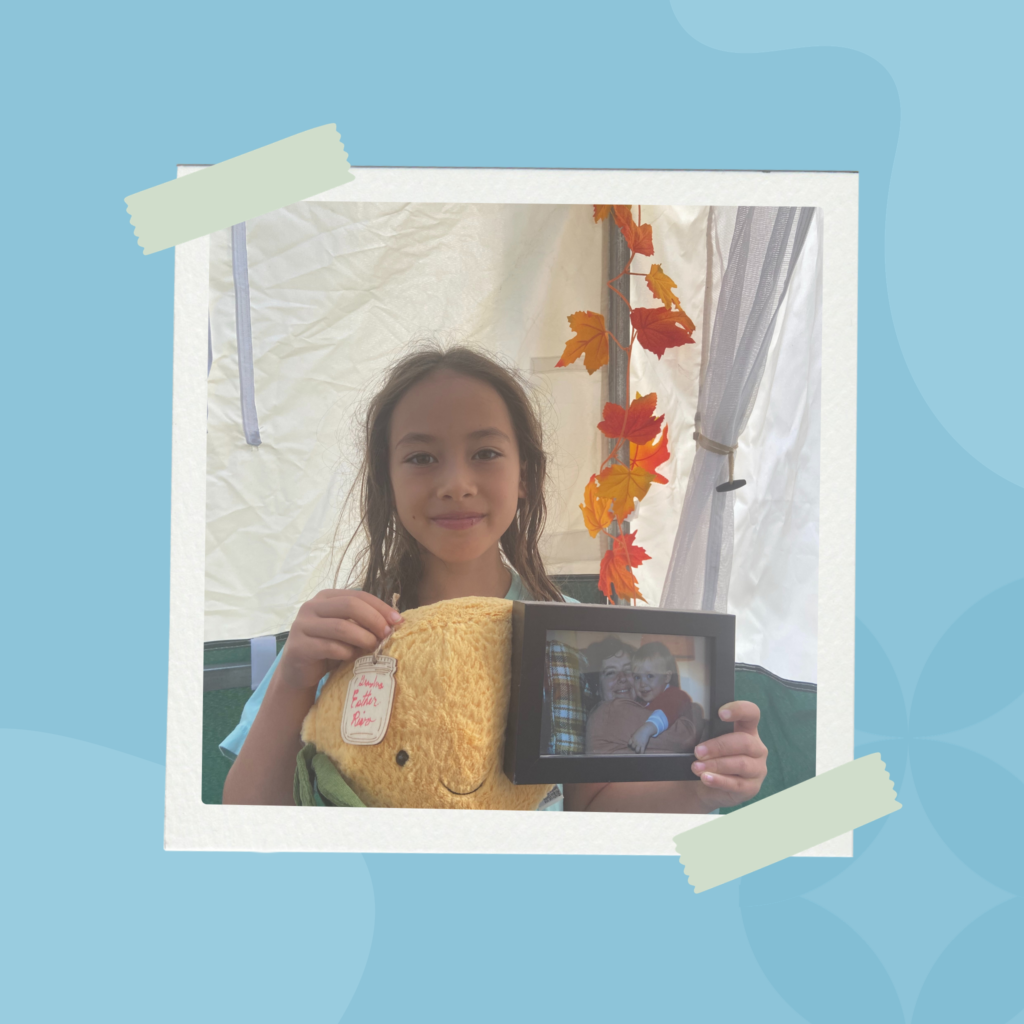We buried my mom, Esther-Riva, on Halloween in 2013. With the stress and the grief, I didn’t even know what day it was until we were riding back from the graveyard in the limo and I saw people in costumes. “Why are they wearing fake blood and gore? Oh, right.”
If you had asked me before what I thought of Halloween, I would have said it was fun and edgy, even a favorite holiday. But the death of a parent can be one of those moments when time telescopes and suddenly, “before” feels very far away. Before, ghosts, graves and bodies were decorations and funny pranks. After, they were ghosts, graves and bodies. Death was no longer a cartoon fiction.
Ten Halloweens later, the distaste hasn’t passed. “How can you hate Halloween?!” people plead — people, I guess, who haven’t lost someone they love near a holiday.
So, I was glad, as I learned more about my mom’s Jewish culture and embraced it for myself, that we have our own, less gory recognition of the thin spot between life and death that is fall. At Yom Kippur, we let ourselves feel the fragility of bodies: our own and those we love, who may or may not be written into the Book of Life. During the Unetanah Tokef prayer, we acknowledge that by fire, by water, bodies can be taken away. Attending my first Yizkor service this year, the service on Yom Kippur when we remember the dead, I felt comfort knowing that if we can’t have our loved ones forever, at least we can be given time to mourn with others and know we’re not alone.
And now, I’m leaning into that fragility even more during the week-long harvest festival of Sukkot. As the Northern Hemisphere dies its little death, rotting into winter, and as Israel waits with a held breath for life-giving rain, we expose ourselves to the cold and rain in our fragile little booths called sukkahs. The sukkah reminds me that even the shelters we’ve come to rely on can’t protect us from everything, and will not last forever. We can do our best to protect our children, like my mom did her best to protect me, and it’s never enough. We still get exposed to the cold and rain, to life.
The photo of my mother in my living room turns bluer every year. I saved her last message on my voicemail for years, avoiding listening to it, but trying to keep it for later, and then it was lost. The last few pieces of clothing she gave me are frayed and faded. I see how not just our bodies, but our lives, are fragile, these gossamer narratives in which I am the main character and a good person despite my regrets and any evidence to the contrary. I face that this year, like every year, might bring my final curtain, but unlike Frank Sinatra, I am not certain of my case.
In the course of her illness, mom lost her memory, the stories that made up her life, so I retold them to her. It was a bittersweet privilege to tell her, “You’re my mother,” and see the smile spread across her face. I am still the keeper of her memory.
For a long time, the memory of my mother was like a knocked-out tooth; it hurt to touch the wound, so I kept things at a distance. But now, scar tissue has formed. I still feel the loss, and it’s still weird eating on the wrong side of my mouth, and it still catches me off guard sometimes in pictures. But the spot has toughened enough for me to prod at it and stay with the absence and the tenderness, to tell her stories to my other Esther, my 8-year-old daughter, who, in Ashkenazi tradition, inherited her name.
Jewish tradition is to invite supernatural guests known as ushpizin into our sukkah each day. Traditionally, these guests are the patriarchs of Jewish tradition: Abraham, Isaac, Jacob, Joseph, Moses, Aaron, and David, each with their associated virtue. There have been more modern efforts to add a feminist twist to the ushpizin, welcoming the matriarchs like Sarah, Miriam, Deborah, Hannah, Abigail, Huldah and, of course, Esther.
My Esther and I have added our own twist: putting the names of lost loved ones on little decorations and welcoming them into our sukkah. We talk about the lessons they have to teach us: Grandma Esther who was generous; Great-Grandpa Sam with his eternal curiosity; Great-Grandma Goldie who was brave. Coming to Judaism, meeting more Jewish people, I feel closer to them as I see faces that look like they could be relatives and hear the Montreal Jewish accent and Yiddish cadences. It has possibly been centuries since one of my ancestors held an etrog, but it’s something they gave me.
In our sukkah, where the Toronto night is too cold for the rest of the family to stay long, young Esther and I look up at the clear sky, the full moon. We smell the delicate violety-lemon smell of the etrog. I tell her about the people we’ve lost, grateful for their memories and for bringing us here.









